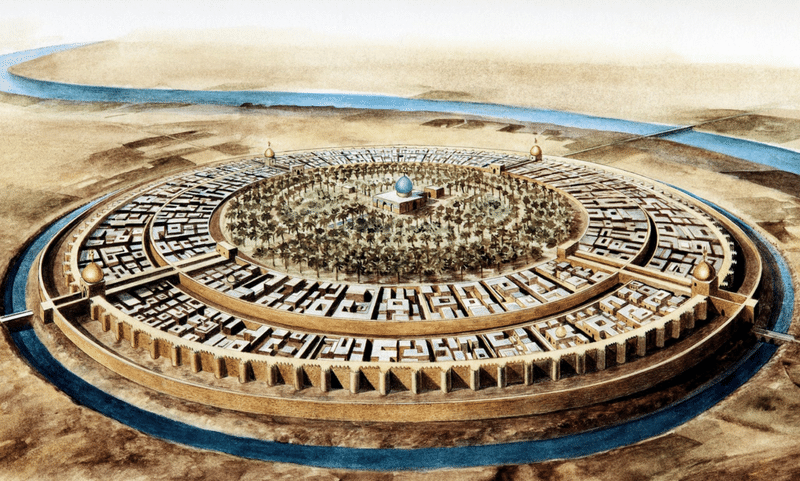文化の衰退
必要なのは予算と適材適所の人材、そして育成だ。
こんなにシンプルなことを、なぜ分からない。
血迷う権力者たちを、どうにかできないものだろうか?
RPG的に考える。
・分からないのか、→権力者の資格ナシ
・分かっていてやらないのか。
→なぜやらないか
・めんどくさい→権力者の資格ナシ
・自分に旨みがない→権力者の資格ナシ
・権力者よりも知性のある存在を憎んでいる
・文化が衰退しても知ったことでは無い
最終的にはいずれも権力者の資格ナシである。
そしてもしも
文化は衰退しない
と思っている権力者が真にいるならば、それはあまりにも人類史に無頓着ではないか。
Round cityが本当のことか私には知る術はない。それに、歴史上「失われたこと」を知ることは不可能だ。どれだけたくさんの智慧が途切れてきたことだろうか。
少しずつ積み重ねた叡智は、崩壊するには一瞬で事足りる。
蛮族の侵入により。
そして蛮族の侵入だけではない。
文化の保存への無関心である。
READYFORが文化庁と「文化財の保存・活用のための寄附促進に関する連携協定」を締結。セミナーも開催
クラウドファンディングサービスのREADYFORが、文化庁と「文化財の保存・活用のための寄附促進に関する連携協定」を締結。文化財保有者や行政担当者向けにクラウドファンディングの活用方法を伝えるセミナーも開催する。
クラウドファンディングサービスのREADYFORが、文化庁と「文化財の保存・活用のための寄附促進に関する連携協定」を締結した。
同社は、これまで神社仏閣などの文化財に関わるクラウドファンディングプロジェクトを累計260件サポートしており、これまでに14億円以上の支援が集まった。昨年、国内最高額を達成した国立科学博物館のクラウドファンディングもサポートした。
日本国内では文化財所有者等の高齢化や地域の過疎化などを背景に、自力での寄付募集の取り組みを行うことが困難な場合もあり、これをサポートする仕組みの必要性が指摘されている。文化庁とREADYFORは、このような背景について認識を共有し、文化財の保存・活用のための寄付を社会に一層定着させることにより、文化財を次世代に確実に継承していくために協働することで合意したという。これに際して下記の連携協定概要が発表されている。
文化財の保存・活用のための寄附に関する社会的気運の醸成
文化財の保存・活用のための寄附募集の取組に関する地方公共団体や文化財所有者等に対する普及啓発
文化財の保存・活用のための寄附募集に取り組む文化財所有者等への支援
その他、文化財の保存・活用のための寄附募集の促進に向けた継続的な協議
具体的な取り組みとしては、4月24日より複数日程で文化庁と共催でセミナーを開催。24日の「文化財保有者向け寄付活用オンライン研修会」を皮切りに、5月8日の「文化財保有者向け寄付活用研修会」(TKP京都四条駅前カンファレンスセンター)、5月16日の「文化財行政担当者向け寄付活用オンライン研修会」を共催。これらのセミナーを通して、おもに文化財保有者や行政担当者向けにクラウドファンディングの活用方法を伝えていく。
博物館に専門人材、文化庁が派遣へ…クリエイター・デジタルアーキビスト・ファンドレイザーなど
2024/04/12 15:00
文化庁は今年度、全国の博物館へ、放送作家などのクリエイターのほか、資料のデジタル化や資金集めの専門家など多様な専門人材の派遣を始める。一昨年の博物館法改正で、博物館には資料のデジタル化や公開など新たな業務が加わったが、ノウハウが不足している。博物館が魅力を高められるよう支援する狙いだ。
文化庁が派遣するのは、展示解説の文章や映像・音声を魅力的にするライターや放送作家といったクリエイターや、博物館の資料をインターネット上などでも活用を進めるため、資料をデジタル化して保存する専門知識を持つ「デジタルアーキビスト」などの専門人材だ。資金を寄付などで集める専門家「ファンドレイザー」や、マーケティングの専門家を派遣して経営基盤を強化してもらうことも想定する。こうした専門人材をリスト化し、希望する博物館に一定期間派遣する。今年度は50人の専門家を登録し、80館に派遣することを目指す。
改正博物館法では、文化財をデジタル化して記録する「デジタルアーカイブ」の作成と公開や、地域活性化のための関係機関との連携など、博物館に新たな役割が加わった。だが、多くの博物館は資金不足で悩んでいる。文化庁の調査では、デジタルアーカイブの必要を感じながらも、人員・知識・ノウハウの不足で取り組めない博物館が多いことが明らかになっている。文化庁の担当者は「伴走しながら支援していきたい」としている。
How much human knowledge has been lost to history?
Well, this ancient wonder was razed by the Mongols in 1258 — it's said the Tigris River ran black with ink.
Here's what was inside...
1,200 years ago, the world's largest city was Baghdad (modern-day Iraq) — 1.5 million lived there at its peak. The Round City, a masterpiece of urban planning, contained one of history's greatest libraries.
Baghdad was then an intellectual capital of the world. Scholars came from all across the Islamic empire, and the ruling Caliphs were eager to collect their knowledge under one roof: The House of Wisdom.
When the city was sacked after 500 years, the Islamic Golden Age came to an end — alongside a devastating loss of knowledge.
But what was actually in there? How significant was the loss?
The House of Wisdom was foremost a place where knowledge was transferred. Many classical texts by that point were lost in Europe, because after the Roman Empire collapsed, copies of texts weren't often being made.
Texts were translated into Arabic from Persian, Syriac and Greek, including some of the rarest Greek materials in existence: Plato, Aristotle, Euclid, etc.
Some were so precious that Caliphs paid translators their weight in gold to translate them.
We know works of philosophy, medicine, astronomy, optics and mathematics were copied — but original research also flourished. Foundational work was done in algebra, and in the pioneering of medical techniques.
So much knowledge was stored there by the 13th century that the Tigris apparently ran black with ink when the Mongols sacked it. One source says:
"So many books were thrown into the river that they formed a bridge that would support a man on horseback."
We don't know how much was lost, but c.400,000 manuscripts were evacuated before the siege. Given the numbers involved, losses might have been as significant as at the Library of Alexandria — where estimates range in the hundreds of thousands.
It's obviously impossible to know what was lost in the great libraries — so put it this way:
All of our knowledge of the Greco-Roman world comes from some 500 volumes. 700,000 scrolls were potentially lost at Alexandra alone.
Catastrophes of this kind might seem like they set humans back centuries with a single blow. The truth is, cultures usually die much earlier...
When the House of Wisdom burned, it was already in rapid decline under the reign of new Caliphs. A literal interpretation of the Quran was being embraced, scientific rationalism abandoned, and Greek philosophy seen as anti-Islamic.
Same in Alexandria: by the time the library was burned down (in part) by Caesar's men in 48 BC, it was already in disuse and decay.
Texts through history were lost not because of fires, but because they weren't copied in the first place — cultures need a reason to preserve them.
Many survived because they were in school curricula for centuries. That's why so many copies of Virgil, Homer and Aristotle exist.
When the Round City fell, the spirit that inspired the translation movement was long gone. Perhaps as much knowledge was lost by what wasn't translated in those final years, than during the eventual destruction.
Cultures aren't simply lost at the hands of ransacking barbarians. They're lost because they die first from something much worse: indifference...

この記事が気に入ったらサポートをしてみませんか?
